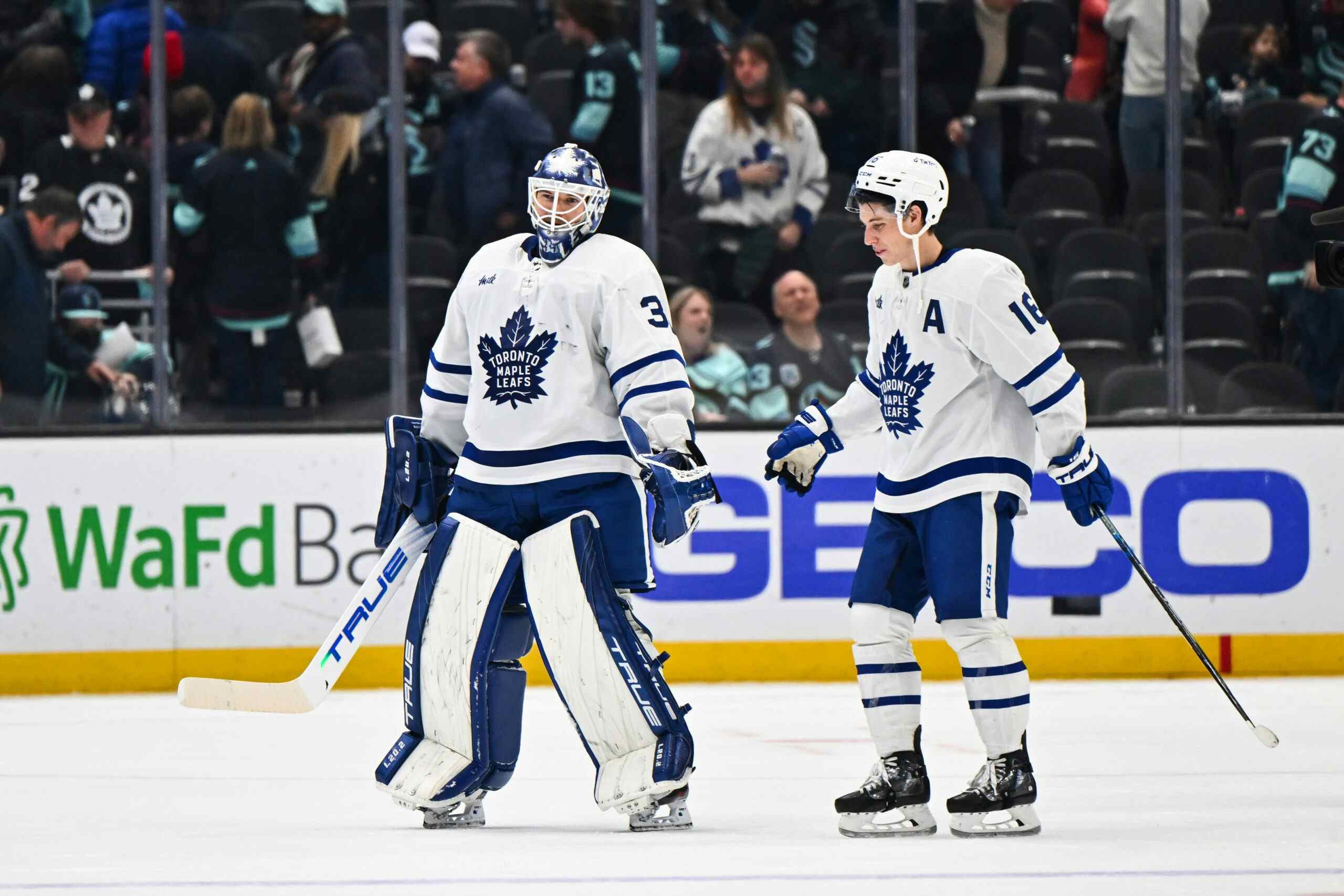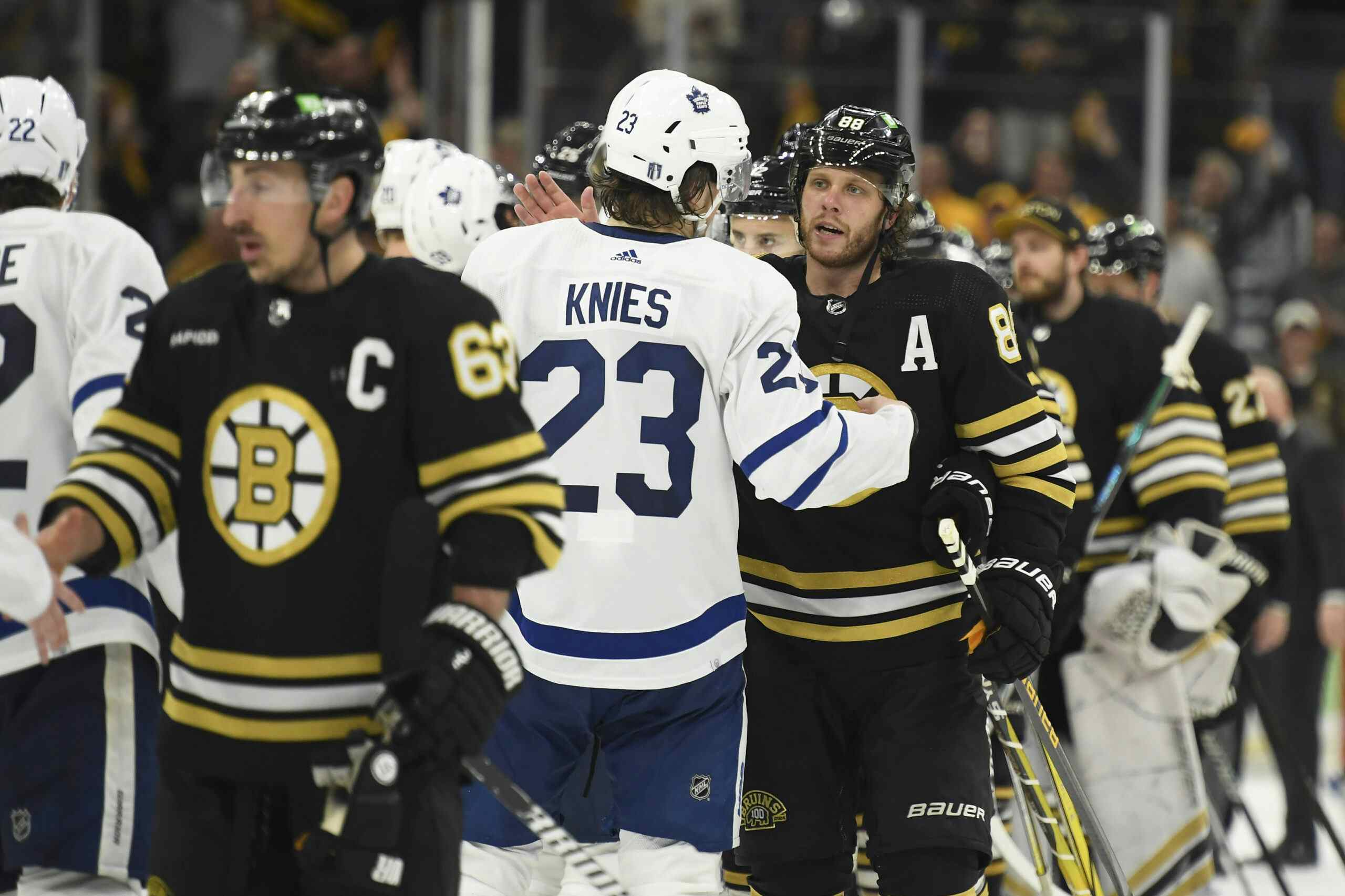From “We” to “They”
By Danny Gray
12 years ago
Every so often “people” (members of the media, sticks-in-the-mud) tell “us” (the fans) how to cheer for our favourite team. As there is no cheering in the press-box, referring to the team in the first person is obviously verboten. It’s hard to see this particular complaint as something other than another salvo in the ever enduring war between the MSM, the Blogosphere, and fans in general. The latest shot came in the form of a Grantland article by Chris Jones. He believes it’s silly that fans refer to their team as “we” and wants you to know you’re wrong to do so. Here are some thoughts on why fans say “we”and my own experience with that troublesome pronoun.
I have been a fan of the Toronto Maple Leafs much long than I have been writing about them. I can’t remember a time when I was not a Leafs fan. I watched Felix, Dougie, and Wendel light up Maple Leaf Gardens while sitting atop my Grandpa’s stomach. In high school I ended a date early to watch Sundin come close but oh so far to beating the Hurricanes and sending the Leafs to the finals. Through all that time I referred to them as we. I knew I was not a member of the team, but “they” is just such an impersonal pronoun. It feels so cold and distant. To call something I had such a close bond to “they” seemed wrong. It may be childish, but I was a child. Fans are an idiosyncratic bunch. We have our game day rituals, we earnestly believe that our chosen couch cushion, or what we ate for dinner that night can, and have influenced the outcome of the game. Under any other circumstances we’d be diagnosed with schizophrenia. But that’s just it, fandom doesn’t make sense. Spending so much time, money, mental and spiritual anguish on a game that we ultimately have no influence over is absolutely irrational. And I know that. But “we” was the reward for all that investment. For all the blowouts watched to the bitter end, for all the overtime loses, for all the blue-chips who became busts, those of us who stuck around earned the right to say “we”. As fans sometimes it is all we have had.
I am not just a fan anymore. Since July I have been contributing at the Leafs Nation. This has complicated my relationship with the term “we”. When writing about the team I have found myself replacing each “we” with “they”. I have had to edit the fan out of my analysis. While trying to provide content from a fan’s perspective, I want my work to be taken seriously and referring to the Leafs as “we” is unprofessional. In the name of objectivity “we” became “they”. I understand that while my main audience is Leafs fans, there are other people reading my work, and I do not want to come off as blue-tinted glasses wearing fanboy. But I will never tell a fan they cannot refer to their team as “we”, they have earned that right.
Jones attempts to disparage the usage of the term “we” by asking us to imagine using it to describe our involvement in other forms of entertainment. “Think about it: Apply "we" to other forms of entertainment and see how ridiculous it sounds. If someone read a book and said to me, "We really killed that opening chapter," I’d wonder if I were talking to Gollum.” I would ask Mr. Jones to consider that he is biting the hand that feeds. I’d argue the term “we” can best explain the economic juggernaut that is professional sports.
“We” are your readers; “we” is why someone pays you to write about sports. Literary, Music, Art and Film critics would kill for an audience so devoted to their work they considered themselves a part of it. (In fact, Lady Gaga has made a dump trucks covered with badger pelts full of money by referring to her fans as “Little Monsters” and fostering a sense of community among them) Without fans they may still play the games, but no one is going to read about it. Sports writers should be thankful they work in an industry with customers so loyal and devoted to the product they cover that they use the term “we”. They disparage us for watching and following a poorly performing team but do not stop to think that if we stopped watching, we would also stop reading. Instead of acknowledging and being thankful for our loyalty, they insult it and blame us for the team’s futility. Do those who write such things really want the fans to stop watching? This would put them out of a job. Fortunately for them we’re not going anywhere.
Sportswriters should realize that without “we” there would be no “they”.
Recent articles from Danny Gray





